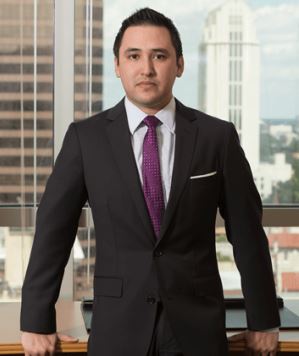The Organization for Economic Cooperation and Development (OECD) estimates than more than 100,000 Australian citizens are living and working in the U.S. Those Australian nationals almost certainly have some sort of Superannuation Fund. The problem is that nearly every accounting firm in the U.S. is treating Australian Superannuation as a taxable foreign grantor trust. This presents a serious issue since the funds within Superannuation Funds are completely inaccessible until retirement, disability, or death. For an American in Australia or dual U.S.-Australian citizen, this would result in immediate U.S. taxation on all gains within the fund. Because of the lack of liquidity, the individual would be taxed on gains they did not truly realize yet. The problem is that there are differing views as to what Australian superannuation actually is in the U.S. Is it a private pension? Is it a foreign grantor trust? Or is it a novel form of privatized social security? The correct answer could mean the difference between a client being burdened with U.S. tax on unrealized gains and a client being able to lawfully exclude gain and even future distributions from the superannuation fund from their U.S. tax return.
The vast majority of U.S. practitioners in the U.S. treat Australian Superannuation as a taxable foreign grantor trust on the basis that it’s a private pension that does not constitute as a qualified retirement fund under Code section 401 or the U.S.-Australia Income Tax Treaty. The problem lies in the “shoot from the hip” characterization of Australian Superannuation as a private pension.
Private pensions are never mandated by law. Private pensions never have state-mandated minimum contribution levels based on a percentage of one’s salary. Private pensions are never addressed in Social Security Totalization Agreements. Private pensions are never referred to as social security by the International Social Security Association and OECD. Private pensions are never covered by the U.S. Social Security Administration’s biannual publication, Social Security Programs Throughout the World, that analyzes the various social security systems around the world. And private pensions are never funded with tax dollars.
On the other hand, Superannuation is mandatory for employees in Australia; just like social security in the U.S. Superannuation has state-mandated minimum contribution levels based on a percentage of one’s salary; just like social security in the U.S. Superannuation is addressed in Part II of the U.S.-Australia Social Security Totalization Agreement that deal with avoiding dual social security taxation; just like social security in the U.S. Superannuation is listed as forming a part of Australia’s overall comprehensive social security regime by the International Social Security Association and OECD; just like social security in the U.S. Superannuation, like all other forms of social security, is referred by the U.S. Social Security Administration’s 2010 publication, Social Security Programs Throughout the World, as being a part of Australia’s current regulatory framework for social security.
Not a single tax firm in the U.S. understands that the 9.5% Superannuation Guarantee is actually a tax imposed by the Australian Tax Office on the company based on the employee’s gross wages; however, instead of the tax going into general government revenue, it goes into the Superannuation Fund.
If Australian Superannuation Funds are characterized as foreign grantor trusts, they would be taxable in the country of residence under Article 21, which would be the U.S. in the case of an Australian national living or working in the U.S. or an American living and working in Australia. However, when Superannuation is properly analyzed and characterized as Privatized Social Security, it falls under Article 18, Paragraph 2, of the U.S.-Australia Income Tax Treaty and any gains or even distributions are exempt from U.S. tax as long as the position if properly disclosed on IRS Form 8833. The “saving clause” does not apply to Article 18, Paragraph 2. This extends to Self-Managed Superannuation Funds as long as the full balance currently is or previously was fully preserved and restricted in accordance with Australian law.
We have been taking this position for 7 years with the full knowledge and acquiescence of the Internal Revenue Service. One of our largest institutional clients is Dixon Advisory Group. If you’re our client, your Superannuation will be safe from U.S. tax exposure.

Mr. Castro is internationally recognized as one of the most authoritative voices in the world of international taxation and has advised numerous national governments on matters of international taxation and income tax treaties.
 Also, concerning the need (or not) for a Form.8833...if treating as Social Security, doesn't the IRS seem to make an explicit exception concerning the need to submit Form.8833? E.g., Within "Exception...2)" in its list here: www.irs.gov/individuals/international-ta...-tax-treaty-benefits
Also, concerning the need (or not) for a Form.8833...if treating as Social Security, doesn't the IRS seem to make an explicit exception concerning the need to submit Form.8833? E.g., Within "Exception...2)" in its list here: www.irs.gov/individuals/international-ta...-tax-treaty-benefits
?0 Interesting piece thanks John!
Interesting piece thanks John!
I get your position there regarding distribution/undistributed gains 'income' that might be attributable to a taxpayer's holding in a Super fund in a given tax year..."Privatized Social Security" payment and therefore exempt from reporting as 1040 income. So far, so good, concerning INCOME-reporting obligations.
A couple of questions though, concerning ASSET-reporting obligations—What do you make of the FBAR/Form.3938 obligations in respect of a taxpayer's Super holdings....either for SMSFs or for holdings in the large pools ie. AMP etc...they look like 'custodial accounts' don't they? Does submitting Form.8833 excuse you from the informational reporting requirements on FBAR and Form8938, ie. the existence and value of the 'assets'?
Look forward to hearing your thoughts!0




